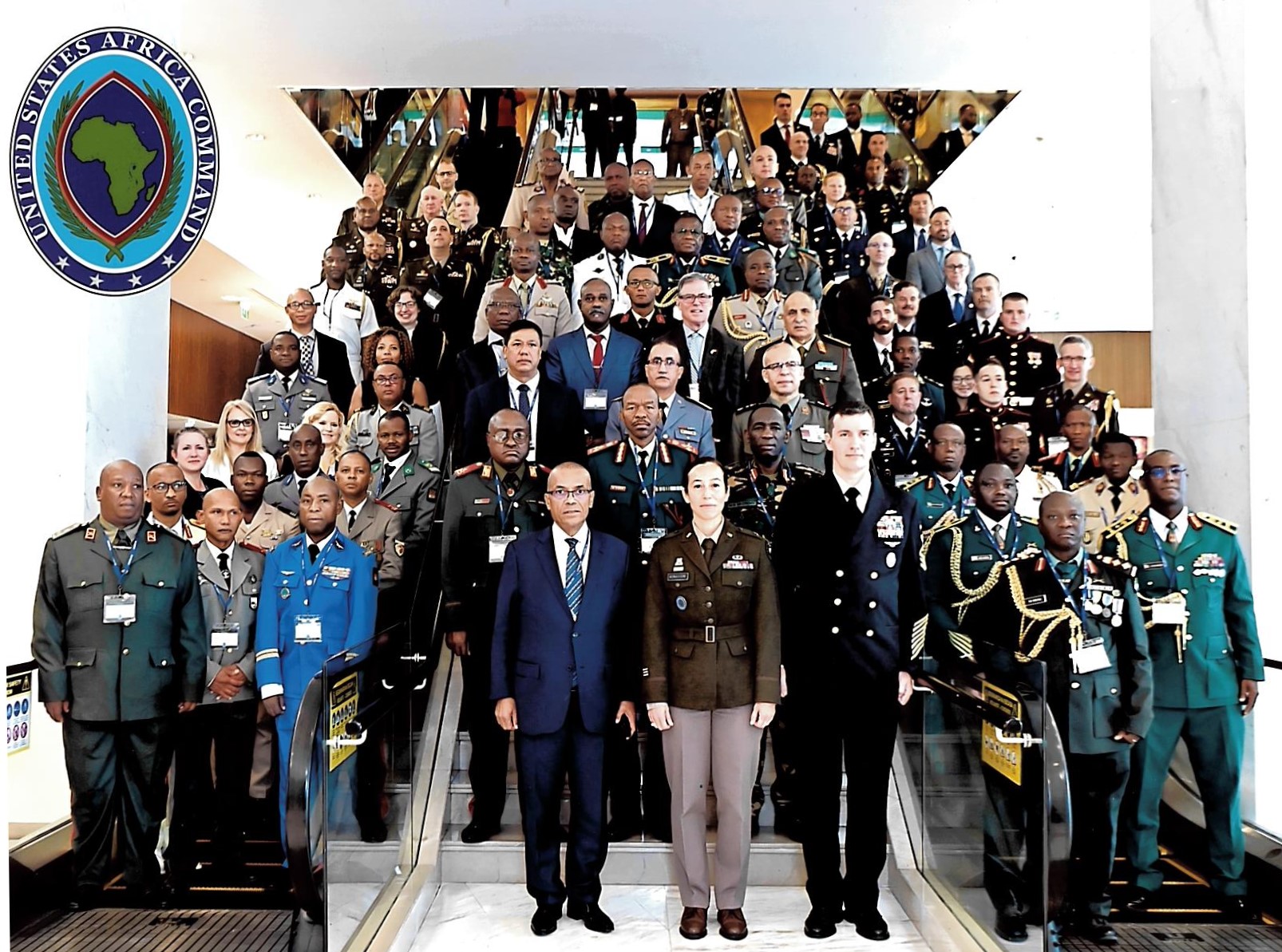Military Intelligence Leaders Discuss Cooperation at Conference in Angola
ADF STAFF
Addressing violent extremism requires militaries to share what they know and coordinate action with their allies.
That was one of the takeaways from the 2023 Directors of Military Intelligence Conference in Luanda, Angola, in late April. The event was hosted by the Angola Military Intelligence and Security Service and U.S. Africa Command (AFRICOM).
The conference offered a platform for military intelligence leaders to develop solutions to challenges shared by African nations, where extremist groups such as al-Shabaab, Ansaroul Islam, Boko Haram, the Islamic State and Jama’at Nusrat al-Islam wal Muslimeen are trying to expand their reach.
“Alone we are condemned to fail,” said Gen. João Pereira Massano, head of the Angola Military Intelligence and Security Service. “If we intend to win, we must cooperate, be united, be technically capable, and with the right precision, we will succeed.”
Massano added that military intelligence leaders have the “strategic responsibility” of assisting in the planning and decisions of political leaders. He also advocated for enhanced partnerships and innovative solutions for states to overcome the challenges facing intelligence services.
The conference was timely as extremist violence on the continent has reached a boiling point. In 2021, nearly half of all global terrorism-related deaths occurred in Sub-Saharan Africa, according to the United Nations Development Program.
In areas with weak security, terrorist organizations take control of major trade routes, deliver brutal justice, collect taxes from local businesses and commit kidnappings for ransom. Increasing numbers of unemployed young people are joining their ranks.
Massano highlighted positive results of international cooperation and diplomatic efforts against terrorism in Mozambique’s Cabo Delgado province, where international military operations have helped reclaim keys areas from insurgents, including the port town Mocímboa da Praia.
Since Russia invaded Ukraine, efforts to combat extremist and terrorist organizations on the continent have faltered. Analysts say the presence of Russia’s mercenary Wagner Group in Africa has further destabilized many areas. The group is accused of pillaging natural resources and committing human rights abuses, which leads some civilians to side with terrorist groups.
As Massano noted, Russia’s war generates losses in world economies, especially in emerging ones, which are forced to reprogram their national development plans.
Brig. Gen. Rose Keravuori, deputy director of intelligence at AFRICOM, said the fight against extremism requires a balance of diplomacy, cooperation and force.
“The military alone cannot achieve peace,” Keravuori said.
Keravuori also underscored the importance of strengthening information sharing between intelligence leaders to better address global threats, adding that Africa has a central role as a “huge geopolitical force.”
Keravuori advocated for greater representation of African nations in global bodies.
“Efforts are rightly under way to reform the current framework of the global system so that African nations finally have a place at the decision-making table, so that African voices are heard in influential global multilateral institutions such as such as the World Bank and the IMF [International Monetary Fund],” Keravuori said. “The U.S. supports the assignment of a permanent African Union seat on the U.N. Security Council and the inclusion of Africa in the G-20.”


Comments are closed.